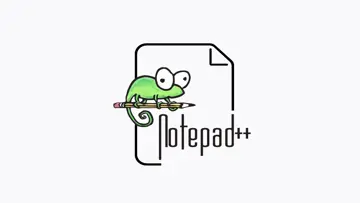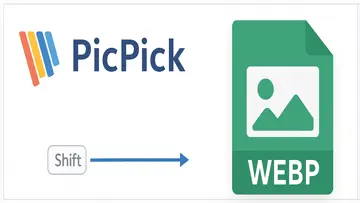Overview of Urwid
Urwid is a versatile console user interface (CUI) library for Python, developed by Ian Ward. This library is designed to help developers create sophisticated terminal applications with ease. As a powerful tool for developing text-based interfaces, Urwid focuses on flexibility and simplicity, making it suitable for a wide range of projects from simple scripts to complex applications.
Key Features
- Custom Widgets: Urwid offers a variety of built-in widgets such as buttons, lists, and edit fields. Developers can also create custom widgets, providing immense flexibility in designing user interfaces.
- Event Loop: The library includes an event-driven architecture that manages user inputs consistently and efficiently, allowing for responsive applications that can handle multiple events simultaneously.
- Support for Multiple Layouts: Urwid supports various layout structures such as boxes and rows. This functionality allows for the development of complex layout arrangements by nesting widgets effectively.
- Unicode and ANSI Support: It fully supports Unicode characters and ANSI colors, enabling developers to create visually appealing interfaces with rich character sets and color coding.
- Flexible Input Handling: The framework handles keyboard and mouse input seamlessly, supporting multiple input methods which is essential for building interactive terminal applications.
Installation and Setup
Installing Urwid is straightforward using Python's package manager, pip. To install Urwid, you simply need to run the following command:
pip install urwid
This command fetches the latest version of Urwid from the Python Package Index (PyPI) and installs it on your machine, making it ready for use in any Python project.
Getting Started with Urwid
The setup process for a basic application using Urwid is simple. Below is a minimal example to demonstrate how to create a basic interactive interface:
import urwid
def exit_on_q(key):
if key in ('q', 'Q'):
raise urwid.ExitMainLoop()
text = urwid.Text("Hello World! Press 'q' to quit.")
fill = urwid.Padding(text, left=2, right=2)
loop = urwid.MainLoop(fill, unhandled_input=exit_on_q)
loop.run()
This code snippet creates a Hello World application that exits when the user presses 'q'. It illustrates how easy it is to get started with Urwid.
Advanced Features
For more complex applications, Urwid provides advanced features that developers can utilize:
- Hierarchical Widget Structures: Developers can compose widgets hierarchically, making it possible to build intricate user interfaces that behave intuitively.
- Theming Support: Urwid allows for styling through themes. Developers can switch between styles to provide an appealing UI experience or quick feedback based on user actions.
- Asynchronous Features: With built-in support for asynchronous programming, Urwid allows developers to write non-blocking code for handling input/output operations which are essential for modern applications.
- Terminal Capabilities Detection: The library can automatically detect terminal capabilities such as color support and screen dimensions which helps in creating adaptive user interfaces.
Use Cases
The applicability of Urwid extends to various domains including:
- Text Editors: Developers can build feature-rich text editors with capabilities such as syntax highlighting and multi-file management.
- Data Visualization Tools: Given its support for rich characters and colors, Urwid is suitable for creating dashboards that visualize data in real-time.
- Games: Simple text-based games can also be developed leveraging its interactive features and flexibility in UI design.
Documentation and Community Support
The documentation provided by Ian Ward is comprehensive and covers various aspects of the library. It offers tutorials, API references, and examples that are useful for both beginners and experienced developers. Additionally, the community around Urwid is active; users can find support through mailing lists or forums where they share insights, ask questions, and discuss potential improvements or features.
Urwid stands out as a robust solution for developing console applications in Python. Its extensive feature set combined with flexible custom widget creation makes it an attractive choice for developers looking to build sophisticated text-based interfaces. With its ease of use and strong community backing, Urwid not only serves as a practical tool but also enhances the developer experience by allowing them to focus on creating rather than worrying about underlying complexities. For those seeking to craft compelling terminal applications swiftly, Urwid offers an optimal framework alongside valuable resources that help facilitate successful project development.
Resumen
Urwid es un software de Código Abierto en la categoría de Desarrollo desarrollado por Ian Ward.
La última versión de Urwid es actualmente desconocida. Inicialmente fue agregado a nuestra base de datos en 16/10/2009.
Urwid se ejecuta en los siguientes sistemas operativos: Windows.
Urwid no ha sido calificada por nuestros usuarios aún.
Últimas reseñas
|
|
AntiRansomware
Proteja sus archivos con AntiRansomware de Abelssoft |
|
smadav85
¡Mejora la protección de tu PC con Smadav85! |
|
|
|
Qualcomm Atheros 11ac Wireless LAN Installer
Instalación rápida y fiable de LAN inalámbrica con el instalador Qualcomm Atheros 11ac |
|
|
HiSuite by Huawei
Administre su dispositivo Huawei de manera efectiva con HiSuite |
|
|
SuperCopier
¡Copie archivos de manera más rápida y eficiente con SuperCopier! |
|
|
Sonos
Disfruta de una calidad de sonido superior con Sonos by de.sonos.com. |
|
|
UpdateStar Premium Edition
¡Mantener su software actualizado nunca ha sido tan fácil con UpdateStar Premium Edition! |
|
|
Microsoft Visual C++ 2015 Redistributable Package
¡Aumente el rendimiento de su sistema con el paquete redistribuible de Microsoft Visual C++ 2015! |
|
|
Microsoft Edge
Un nuevo estándar en la navegación web |
|
|
Google Chrome
Navegador web rápido y versátil |
|
|
Microsoft Visual C++ 2010 Redistributable
Componente esencial para ejecutar aplicaciones de Visual C++ |
|
|
Microsoft Update Health Tools
Herramientas de estado de Microsoft Update: ¡asegúrese de que su sistema esté siempre actualizado! |





